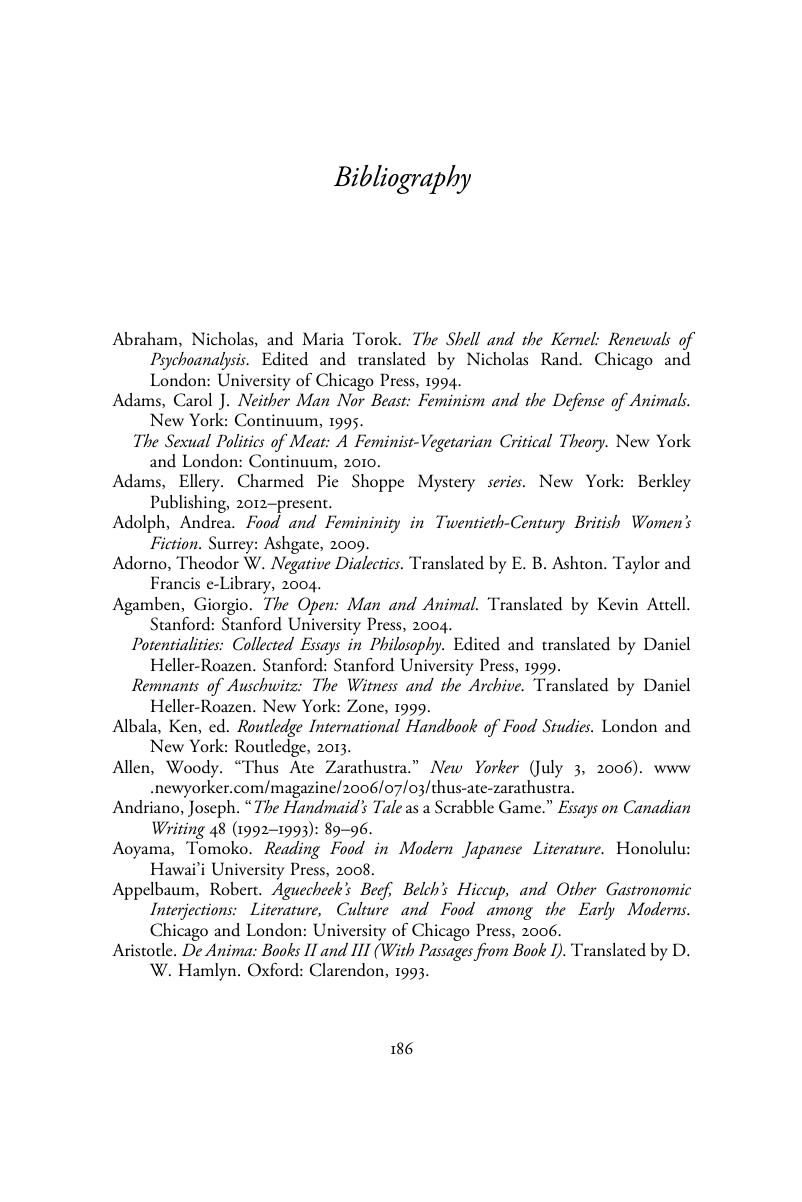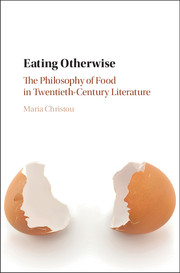Book contents
- Eating Otherwise
- Eating Otherwise
- Copyright page
- Contents
- Illustrations
- Acknowledgments
- Introduction
- Chapter 1 Georges Bataille’s Pornographic Food
- Chapter 2 Samuel Beckett’s Alimentary Cogito
- Chapter 3 Food, the Fall, and the Detective
- Chapter 4 Food in Margaret Atwood’s Dystopias
- Conclusion
- Notes
- Bibliography
- Index
- References
Bibliography
Published online by Cambridge University Press: 06 October 2017
- Eating Otherwise
- Eating Otherwise
- Copyright page
- Contents
- Illustrations
- Acknowledgments
- Introduction
- Chapter 1 Georges Bataille’s Pornographic Food
- Chapter 2 Samuel Beckett’s Alimentary Cogito
- Chapter 3 Food, the Fall, and the Detective
- Chapter 4 Food in Margaret Atwood’s Dystopias
- Conclusion
- Notes
- Bibliography
- Index
- References
Summary

- Type
- Chapter
- Information
- Eating OtherwiseThe Philosophy of Food in Twentieth-Century Literature, pp. 186 - 203Publisher: Cambridge University PressPrint publication year: 2017

